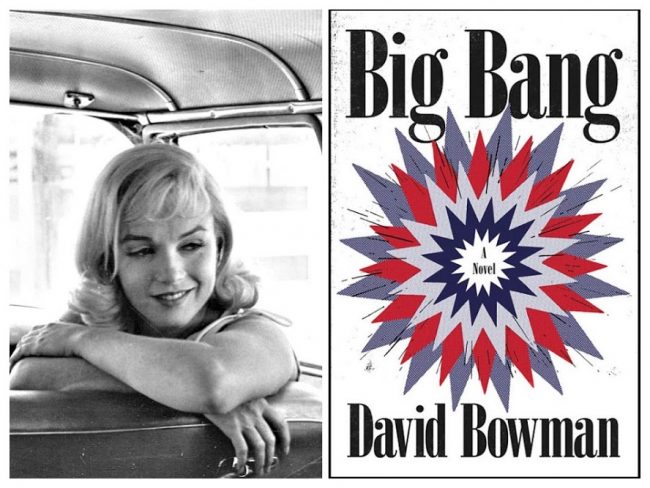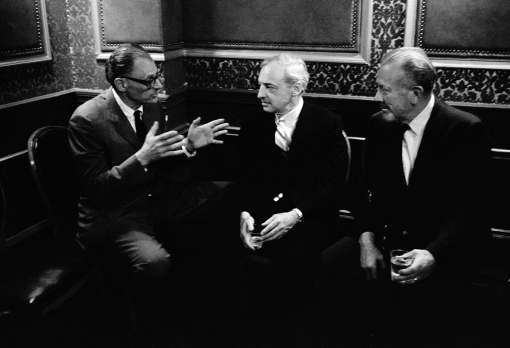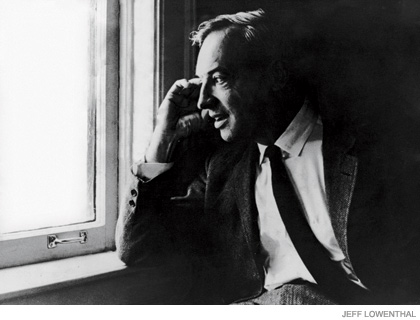
Marilyn and the making of The Misfits are among the many historical touchstones featured in Big Bang, David Bowman’s posthumously published novel of mid-century America, as John Williams reports for the New York Times. (According to Publisher’s Weekly, Bowman – who died in 2012 – also delved into the origins of The Misfits in 1956, when Arthur Miller and Saul Bellow were waiting out their divorces in Nevada. Events which followed the movie – such as Marilyn singing ‘Happy Birthday’ to President Kennedy in 1962, and Miller’s depiction of her in the 1964 play, After the Fall – are also mentioned.)
![]()
“The novel’s central nervous system is formed around American politics — it ends as well as begins with Kennedy’s death, and spends considerable time on the Vietnam War, the Cuban Missile Crisis and Watergate. But J.F.K., Jacqueline Kennedy, Aristotle Onassis, Richard Nixon and Ngo Dinh Diem are joined in this story by — among others — Jimi Hendrix, Bruce Lee, Lucille Ball and Desi Arnaz, Dr. Benjamin Spock and his wife, Jane, George Plimpton, Saul Bellow, Norman Mailer, Arthur Miller, Marilyn Monroe, the literary critic Leslie Fiedler, J. D. Salinger, Jackson Pollock and Lee Krasner, Willem de Kooning, Elizabeth Taylor, Raymond Chandler, Sylvia Plath, Jack Kerouac, Frank Sinatra and Maria Callas.
The events recounted in Big Bang include, but are far from limited to: Mailer stabbing his wife, Burroughs shooting his wife, Rosemary Kennedy’s lobotomy, Khrushchev at Disneyland, the director John Huston making The Misfits, Fidel Castro’s appearance on The Ed Sullivan Show, Nixon playing the piano on The Jack Paar Show, the release of the Ford Edsel, Montgomery Clift nearly dying in a car wreck after leaving a dinner party in the Hollywood Hills and, for about the blink of an eye, a young George W. Bush in the car with his mother, Barbara, after she has suffered a miscarriage.”

